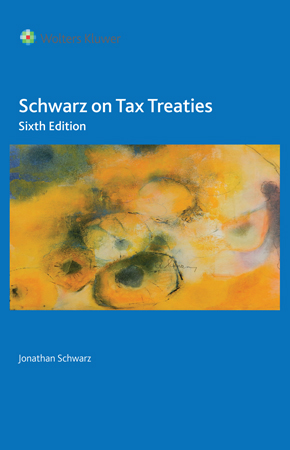We are happy to inform you that the latest issue of the journal is now available and includes the following contributions:
Han Kogels, The Energy Transition and Fiscal Policy
The aim of the Paris Agreement of 4 November 2016, meanwhile ratified by 184 countries, is to strengthen the global response to the threat of climate change by keeping a global temperature rise this century well below 2 degrees Celsius above the pre-industrial levels and to pursue efforts to limit the temperature increase even further to 1.5 degrees. In order to achieve this, a drastic energy transition ‘from fossil to nonfossil’ is required in order to mitigate anthropogenic emissions of greenhouse gases (hereinafter: ‘GHG’) by the mid of this century.
In this editorial I will go into the ambitious targets the EU has set itself for reducing its GHG emissions progressively up to 2050, and make some remarks on the consequences for fiscal policy in the EU.
Cees Peters, Tax Policy Convergence and EU Fiscal State Aid Control: In Search of Rationality
The pending tax ruling constitute a new saga in the continuous political battle between the Member States and the European Commission about the limits of article 107 TFEU within the complex multi-level tax governance system of the EU. This article claims that the legal determination of these limits – as reflected in the distinction between general measures and fiscal state aids – cannot provide for a rational explanation concerning the balance of power between the Member States and the European Commission. Consequently, it cannot be maintained that the European Commission should merely monitor the limits of EU fiscal state aid control as defined by the Member States. Such an understanding is at odds with the prevailing neo-functionalist reality in which the European Commission is able to develop state aid policies in an independent way. This contribution reaches these conclusions on the basis of a combination of the legal and the political-economic traditions that study EU (fiscal) state aid control. It calls for more multidisciplinary academic discussion about the desirable function and limits of EU fiscal state aid control.
Ilse De Troyer, The Tax Debtor’s Right of Defence in Case of Cross-Border Collection of Taxes
In its recent Donnellan judgment (28 April 2018, C-34/17), the CJEU provides some clarification with regard to the protection of a tax debtor’s right of defence in situations of cross-border assistance for the recovery of tax claims and tax related penalties. At the same time, this decision leads to a number of new questions, in particular with regard to the correct interpretation of Article 14 of Directive 2010/24 on mutual tax recovery assistance.
The impact of intercompany transfer pricing (adjustments) on the customs value of goods is increasingly attracting attention, particularly since the remarkable judgment of the EU Court of Justice in the Hamamatsu case. The authors discuss the interaction between transfer pricing and customs valuation in a general sense, with specific consideration of the impact of the Hamamatsu judgment. They subsequently propose new statutory or other guidance for aligning the setting of transfer prices and customs values more closely, based inter alia on a comparative law study of the position in the United States and Canada.
Effective and deterrent methods of combating VAT fraud are crucial for the undisturbed functioning of EU internal market, provision of sound legal framework for taxpayers and protection of the integrity of the fiscal systems of the Member States. Artificial intelligence, algorithms and other technological developments involving big data analysis provide potent tools, which can assist tax administrations in enforcing taxpayers’ compliance and preventing fraudulent activities with an unprecedented efficiency and effectiveness. However, reliance on such tools in exercise of State’s powers must respect fundamental rights of taxpayers, such as the right to fair trial. This article examines the potential risks and necessary guarantees for the consistency with the provision of the VAT Directive and for the protection of the right to fair trial in the context of new technologies and enforcement of tax laws. The issue is analysed from the perspective of European Union Law and is based on an example of a Polish algorithm-based automated system of detection of VAT fraud.
More from our authors:

|
Schwarz on Tax Treaties, Sixth Edition by Jonathan Schwarz € 211 |